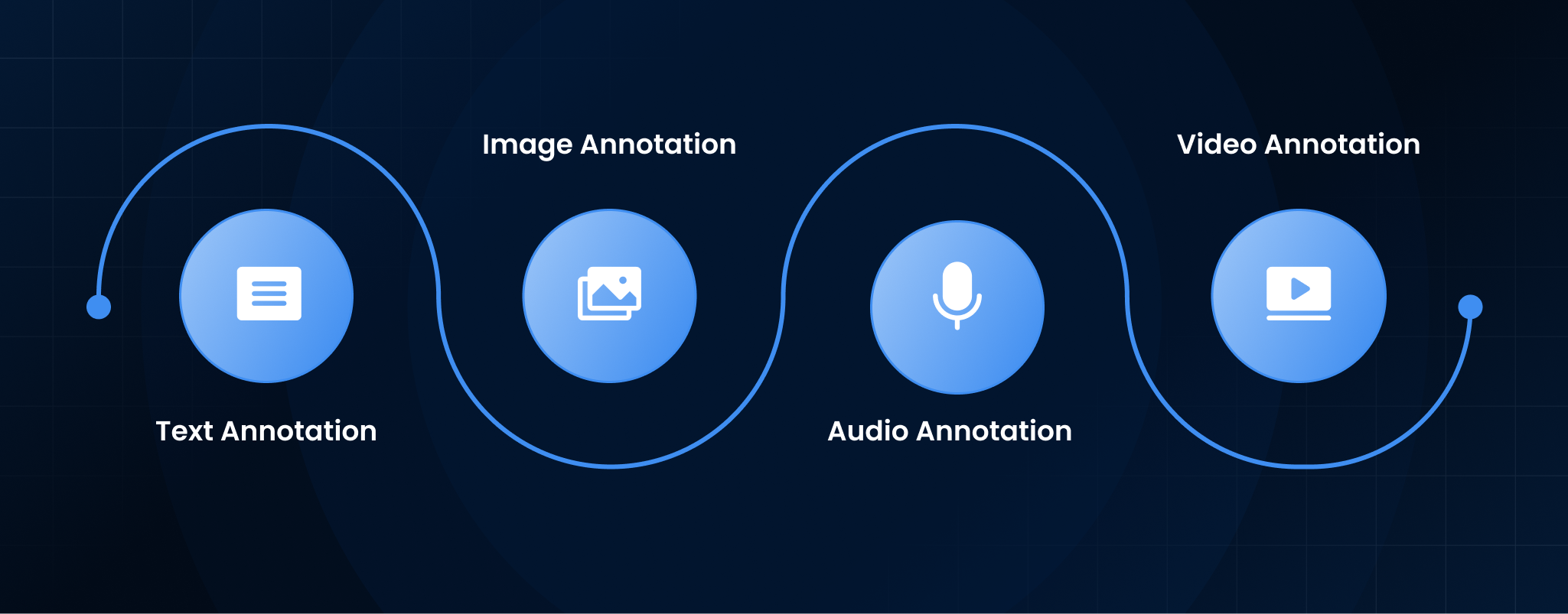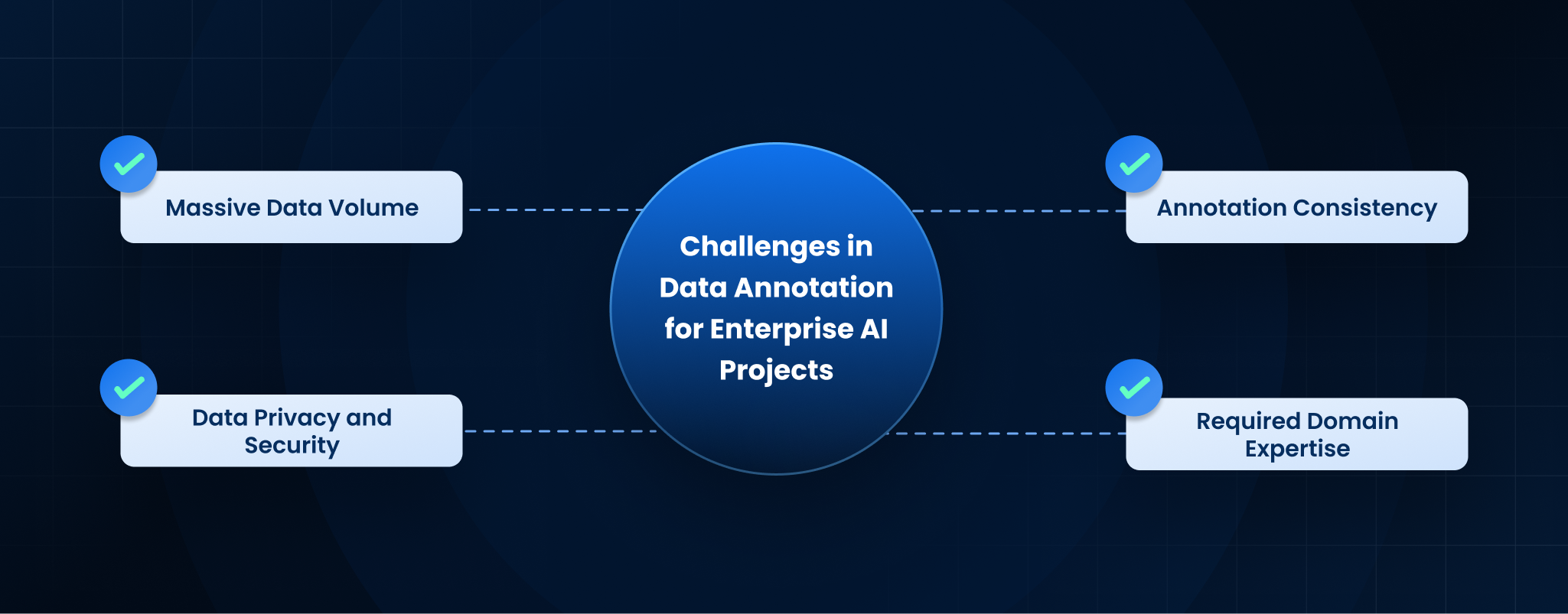Introduction
For technology leaders overseeing the complex ticketing systems of large U.S. companies, the question “what is data annotation?” is moving to the forefront of strategic discussions. In 2025, it’s no longer a niche technical term but a fundamental pillar supporting the AI-driven transformation of how employees interact with IT, HR, and Finance. As you navigate the evolving landscape of enterprise technology, understanding data annotation is key to unlocking truly intelligent automation and exceptional employee experiences.
Imagine your internal support systems as a giant brain. To learn and respond effectively, this brain needs to be trained with vast amounts of information, much like a human intern learning the ropes. Data annotation is precisely this training process, labeling and categorizing raw information so that artificial intelligence models can understand it, learn from it, and make accurate decisions. For your ticketing systems, this means transforming chaotic employee requests into structured data that AI can interpret.
Understanding Data Annotation and Its Importance in AI
At its heart, understanding data annotation means recognizing the human element essential for machine learning. Think of it like teaching a new team member how to sort incoming mail. You wouldn’t just hand them a pile; you’d show them examples, explain what constitutes an “urgent” request versus a “routine” inquiry, and demonstrate how to categorize by department. Data annotation is the digital equivalent, where human experts label examples of IT issues, HR questions, or finance queries, providing the context and meaning that machines need to learn.
This painstaking process is vital for building robust AI. Without properly annotated data, AI models are like a GPS without maps, they have the technology but lack the foundational knowledge to guide them. For enterprise AI, especially in sensitive areas like employee support, the accuracy of your AI agents directly correlates with the quality of your annotated data. High-quality annotation ensures your AI can accurately understand employee intent, leading to faster resolutions and greater satisfaction. In 2025, as enterprises lean heavily on AI to manage vast volumes of employee requests, the strategic importance of this step cannot be overstated.
Types of Data Annotation: Text, Image, Video, and Audio
When considering what is data annotation in practice, it’s important to recognize that it takes many forms, depending on the type of data involved. For enterprise ticketing systems, text is paramount, but other data types are gaining traction.
-
-
Text Annotation: This is critical for employee support. It involves labeling words, phrases, or entire sentences within a text to convey meaning. For example, an annotator might highlight “my laptop is slow” as an “IT issue” and “password reset” as a “security request.” This helps an AI agent understand the core problem. Text annotation also includes sentiment analysis, identifying whether an employee’s tone is frustrated or satisfied, which is invaluable for prioritizing tickets.
-
-
-
Image Annotation: While less common for pure text-based ticketing, image annotation becomes relevant when employees attach screenshots or photos to their tickets. An annotator might draw bounding boxes around specific error messages or identify relevant UI elements, helping an AI agent “see” the problem.
-
-
-
Audio Annotation: With the rise of voice-based interactions and unified communication platforms, audio annotation is increasingly important. This involves transcribing spoken words and labeling specific segments of speech, such as identifying a speaker’s intent or emotional state during a phone call to IT support.
-
-
-
Video Annotation: For more complex scenarios, such as documenting a technical issue in real-time, video annotation helps. Annotators might track objects or actions within a video, allowing an AI to understand a sequence of events leading to a problem.
-
Each type of data annotation feeds specialized AI models, allowing your enterprise to process and understand diverse forms of employee input, making your support systems more comprehensive and intelligent.

Challenges in Data Annotation for Enterprise AI Projects
Despite its importance, data annotation presents unique challenges, especially for large enterprises. These hurdles are crucial for technology leaders to understand.
One significant challenge is the sheer volume of data. Large companies generate millions of employee tickets annually across IT, HR, and Finance. Manually annotating this massive influx of information is impractical, time-consuming, and expensive. Ensuring consistency across a large team of annotators is also difficult. Different individuals might interpret the same data slightly differently, leading to inconsistent labels that can confuse an AI model.
Another major concern is data privacy and security. Employee tickets often contain sensitive personal information. Protecting this data during the annotation process is non-negotiable, requiring robust anonymization and strict access controls. Furthermore, the specialized knowledge required to accurately label IT, HR, or Finance queries means that annotators must possess relevant domain expertise, which adds another layer of complexity. Simply put, generic annotators won’t cut it for enterprise-level challenges. Overcoming these challenges is essential for building effective and secure AI.

How Accurate Data Annotation Drives Better AI Performance
The direct link between accurate data annotation and superior AI performance cannot be overstated. Consider your AI agent as a student learning from examples. If those examples are clear, consistent, and correctly labeled, the student learns quickly and effectively. Conversely, if the examples are muddled or contradictory, the student will struggle to grasp concepts and make mistakes.
High-quality data annotation directly translates into an AI agent’s ability to accurately understand employee requests, classify them correctly, and provide relevant solutions. For instance, if an employee types “I need my pay stub,” perfectly annotated data ensures the AI agent understands this is a “Finance” request, not an “HR” query about benefits, and immediately directs them to the right resource or even provides the document. This precision reduces errors, decreases resolution times, and significantly improves employee satisfaction. Poorly annotated data, however, can lead to misinterpretations, incorrect routing, and a frustrating experience for employees, eroding trust in your AI systems. Therefore, investing in accurate data annotation is an investment in the reliability and effectiveness of your entire AI strategy.
Leena AI’s Approach to Data Annotation for HR and IT Workflows
At Leena AI, we understand that robust AI agents, particularly for sensitive HR and IT workflows, depend entirely on superior data annotation. Our approach is built on a foundation of domain expertise, leveraging a blend of human intelligence and advanced automation. We recognize that generic annotation won’t suffice for the nuanced and often complex issues employees face in large enterprises.
We employ subject matter experts who understand the intricacies of IT and HR processes within a corporate environment. These experts meticulously label data, ensuring accuracy and consistency that goes beyond basic keyword recognition. This deep understanding allows our AI to differentiate between similar-sounding requests with entirely different implications, for example, distinguishing an “access request” for a new application from a “broken access” issue needing IT intervention. Furthermore, our platform incorporates sophisticated tooling that streamlines the annotation process, enhancing efficiency while maintaining high quality. This focused, expert-driven data annotation ensures that Leena AI’s agents learn from the best possible examples, leading to highly effective and precise support for your employees.
Leveraging Leena AI’s AI Colleagues to Automate Data Labeling Tasks
Leena AI is pioneering the use of Agentic AI, not just in resolving tickets but also in refining the very process of data labeling. Our “AI Colleagues” are designed to automate and optimize the foundational work of data annotation. This is a game-changer for large enterprises grappling with vast datasets.
Imagine an AI agent that can intelligently pre-label a significant portion of incoming tickets based on learned patterns and existing knowledge bases. These AI Colleagues can identify common phrases, entities, and intents, suggesting initial labels with high confidence. Human experts then review and refine these suggestions, focusing their valuable time on complex, ambiguous cases rather than repetitive tasks. This human-in-the-loop system accelerates the annotation process dramatically while maintaining an unparalleled level of accuracy. By leveraging our AI Colleagues, your organization can overcome the scalability challenges of data annotation, continuously improve the quality of your training data, and ensure your AI agents are always learning from the most relevant and accurate information available. This approach significantly reduces the manual effort and cost traditionally associated with data annotation, making your AI initiatives more efficient and impactful.
Leena AI’s Pioneering Agentic AI in IT Solutions
Leena AI’s Agentic AI in IT solutions are transforming how large enterprises handle internal IT support. Our AI Colleagues act as proactive, intelligent partners, designed to resolve employee IT issues swiftly and efficiently, often without human intervention. From automating password resets to troubleshooting common software problems and providing instant access to knowledge base articles, Leena AI empowers employees to get immediate assistance.
We create value by reducing the burden on your IT helpdesk, allowing your human IT professionals to focus on more complex, strategic projects. Our AI agents learn from every interaction, constantly improving their ability to understand and resolve a vast array of IT-related queries. This leads to significantly faster resolution times, improved employee productivity, and a tangible reduction in operational costs. By providing a seamless, always-available support experience, Leena AI elevates the standard of IT service within your organization.
The Future of Enterprise AI with High-Quality Data Annotation and Leena AI
Looking ahead to 2025 and beyond, the future of enterprise AI is inextricably linked to the quality of your data annotation. As AI models become more sophisticated, the demand for precise, contextually rich, and unbiased training data will only grow. High-quality data annotation is the bedrock upon which truly intelligent and trustworthy AI agents are built.
Leena AI is at the forefront of this evolution. Our commitment to advanced data annotation, combined with our innovative Agentic AI platform, positions your enterprise for unparalleled success in automated employee support. By ensuring that our AI agents are trained with the most accurate and relevant data, we empower them to deliver exceptional experiences across IT, HR, and Finance. This approach allows your organization to move beyond basic automation to truly intelligent assistance, transforming employee productivity and satisfaction. The journey towards a fully optimized, AI-powered enterprise begins with understanding what is data annotation and embracing its strategic importance with partners like Leena AI.
Frequently Asked Questions (FAQs)
1. What is data annotation in the context of enterprise ticketing systems?
Data annotation in enterprise ticketing systems means labeling and categorizing employee requests and historical ticket data across IT, HR, and Finance. This process teaches AI agents to understand the intent behind employee queries, leading to accurate responses and efficient resolution.
2. Why is understanding data annotation important for CIOs and CTOs?
For CIOs and CTOs, understanding data annotation is crucial because it’s the foundation for successful AI initiatives. High-quality annotation ensures AI agents are accurate, secure, and deliver a positive return on investment by improving efficiency and employee satisfaction.
3. How does Leena AI ensure high-quality data annotation for its AI agents?
Leena AI combines domain expertise with advanced automation. Our subject matter experts meticulously label data for IT and HR workflows, while our AI Colleagues pre-label tasks, ensuring high accuracy and efficiency in the data annotation process.
4. Can data annotation help improve employee satisfaction with support systems?
Absolutely. Accurate data annotation directly improves an AI agent’s ability to understand and resolve employee issues quickly. This leads to faster solutions, fewer escalations, and a much more satisfying support experience for your employees.
5. What are the main types of data annotation used in enterprise AI?
The main types of data annotation relevant for enterprise AI include text annotation for understanding written queries, image annotation for screenshots, and increasingly, audio annotation for voice interactions with support systems.
6. How do 2025 trends impact the importance of data annotation?
In 2025, with the widespread adoption of generative AI and Agentic AI, high-quality data annotation is more critical than ever. It ensures AI models are trained on accurate, unbiased data, which is essential for delivering reliable and effective automated employee support.













